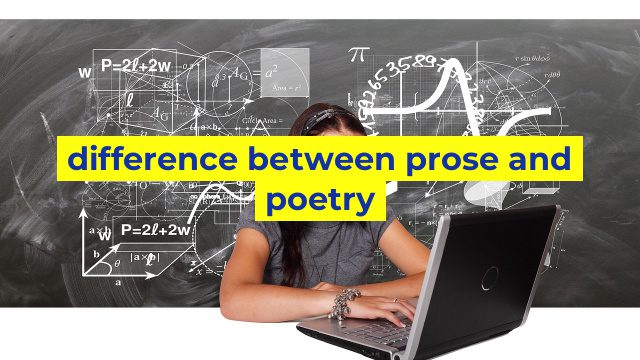The Key Differences between Prose and Poetry
When it comes to literature, two of the most distinct forms are prose and poetry. Prose typically refers to written language that follows the conventions of natural speech, with the aim of conveying a narrative or information to the reader. Poetry, on the other hand, is characterized by its unique use of language to evoke emotion and imagery. In this article, we will explore the main differences between prose and poetry.
Structure and Form
The most obvious difference between prose and poetry is their structure and form. Prose is written in paragraphs, with sentences that follow each other in a logical, linear way, while poetry makes use of stanzas or verses, with lines that may or may not follow a strict pattern of rhyming and meter.
Language and Style
Poetry uses language in a more artistic and imaginative way than prose. It employs literary devices such as metaphor, simile, and alliteration to create a musical quality to the work. Prose, on the other hand, tends to have a more straightforward language and style, with the primary goal of conveying information or a story.
Emphasis on Sound and Rhythm
Another key difference between prose and poetry is their emphasis on sound and rhythm. Poetry is often characterized by its use of musical elements such as rhyme, meter, and repetition of sounds, while prose is not typically focused on creating a musical cadence.
Emotional Impact
Whereas prose tends to prioritize conveying information in a straightforward manner, poetry often aims to evoke an emotional response from the reader. By using imagery and metaphor, poetry can create a deep emotional connection between the reader and the work, which can linger long after the poem has been read.
In conclusion, the differences between prose and poetry go beyond simply the format of the work. Both forms of literature have their unique qualities and uses, and understanding these differences is crucial for both readers and writers. Whether one prefers the straightforward nature of prose or the emotive quality of poetry, there is a place for both forms in the world of literature.
Table difference between prose and poetry
| Category | Prose | Poetry |
|---|---|---|
| Structure | Paragraphs or sentences | Lines and stanzas |
| Rhythm | May have some rhythm or flow, but not as structured as poetry | Rhythm is a key element in poetry, with specific meters and patterns |
| Language | More straightforward, basic language | More figurative and imaginative language, often uses metaphors and similes |
| Emotion | May express emotions, but not as prominently as poetry | Often used to evoke strong emotions and feelings |
| Purpose | Primarily used to tell a story or convey information | Primarily used to evoke emotions or convey deeper meanings |
